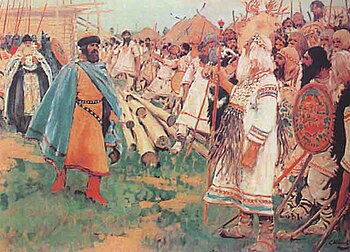How can we take the atheist movement to the next level, improving our organization to better utilize our numbers, without erecting the sort of centralized hierarchy which so many atheists oppose? I think the trick is that we need not one atheist organization but several, each with a different but complementary mission. And for this to be maximally effective, we need to limit the amount of redundancy. For example, we need at least a few active atheist think tanks, but I am not sure we need 20 or 30 of them. We need a network for informing and mobilizing activists, but we do not need several (at least not if we want to begin to effectively utilize our numbers).
Herding Cats
In response to the inevitable question about why we should even consider improving our organization, I'll offer the following:
The atheist movement has so many important tasks to accomplish that some level of organization is essential. We need to better utilize our numbers and reduce redundant effort, much of which may be wasted.
Many atheists fear that improving our organization means a loss of freedom, but this is not necessarily so. The goal is not - and should not be - the development of a single organization to "govern" all atheists. The American Atheists model is not what we need. Rather, I envision a system laid out something like a wheel. Each spoke represents an organization (or small coalition of organizations) working toward a common goal. The hub of the wheel is merely a point of coordination among all the spokes.
I realize that some are so determined to interpret any form of organization as a threat to their autonomy. I find this unfortunate because it severely limits what the atheist movement can accomplish. We are far stronger when we come together than when we refuse to affiliate.
Spokes on a Wheel
Some of the necessary spokes are already in place and functioning quite well. For example, the Freedom From Religion Foundation and Americans United for Separation of Church and State do an impressive job of working to protect the separation of church and state. We probably don't need additional groups focused on this task as much as we need to strengthen those that already do it so well.
We also have some great options in terms of community-building and social networking in the form of Atheist Nexus, Think Atheist, and others. We do not need more of these as much as we need to strengthen those already functioning well.
Other necessary spokes are virtually absent and represent opportunities for creative individuals or groups to make a significant impact. Atheist think tanks come to mind as something we need but do not currently have, at least not to the level we need. Another example might be a system for disseminating information about instances of anti-atheist bigotry and facilitating rapid responses from the atheist community. I am sure you cant think of a few others.
Local Atheism
What about the state and local atheist groups? How do they fit in? They are perhaps the most vital of all because they reflect the true grassroots. They are a critical part of the wheel too. But like the other parts, they would benefit from increased communication and coordination.
Imagine a local atheist group in Nevada doing some wonderful things. Unless their story is picked up and accurately portrayed in the right form of media, atheists in Montana may never hear of it. Moreover, some of what has been so successful in Nevada may be just what the Montana atheists are seeking.
Imagine how much more effective state and local efforts might be if there was improved communication among the many groups. Groups would remain autonomous but could at least hear what is working or not working elsewhere.
Organizing Atheists Via the MoveOn.org Model
I suggested that we create an atheist organization to inform and mobilize ourselves modeled after MoveOn.org. Such an organization would be merely another spoke in the wheel. It would serve a vital function which is now being shared by a number of groups that are spread too thin as a function of their much broader missions. By giving our atheist version of MoveOn.org a comparatively narrow focus, we would be able to devote all our work to a smaller set of goals.
8/20/09 Update: Since writing this post, I have rediscovered the Secular Coalition for America and realized that they are already serving at least some of the MoveOn-like function I previously described. Perhaps it would make more sense to strengthen them instead of creating yet another group.
 Image via Wikipedia
Image via Wikipedia
